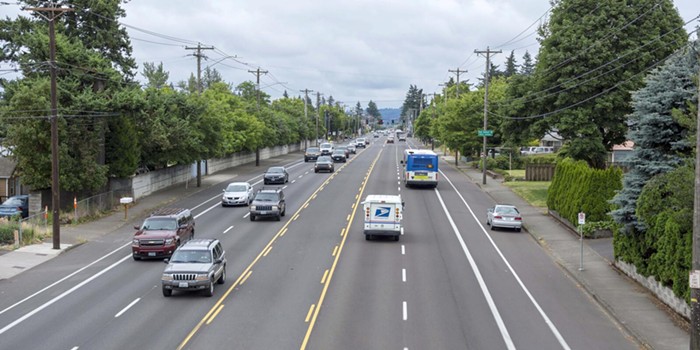The mayor's Racial Profiling Committee grappled with new traffic stops data last week, and discovered some unwelcome surprises.
The statistics, covering 2006, show that Latino drivers were more likely than ever to be searched by Portland's police. According to the data, Latino drivers—accounting for nine percent of stops last year while making up just six percent of Portland's population—were searched 10 percent of the time after being pulled over. That's an upward trend from prior data, which showed that Latino drivers were searched six percent of the time in 2004, and eight percent in 2005.
"That stands out," said Jo Ann Bowman of Oregon Action, the committee's co-chair, at the Thursday, February 15 meeting. Police Chief Rosie Sizer, the other co-chair, said she did not know why Latino drivers were being searched more often than in years past.
Meanwhile, Portland's African Americans were—as usual—more likely to be stopped than whites in 2006 than they were in the previous two years. In 2006, African Americans accounted for 14 percent of stops, although they comprise six percent of Portland's population. In 2005, 13 percent of traffic stops involved African American drivers.
At the Racial Profiling Committee meeting, committee members learned that the data only includes traffic stops—which were down overall by nearly 15 percent over the prior year, a decrease that's partially thanks to a 10 percent decrease in precinct officers—and not pedestrian encounters or "mere conversations" between officers and the public, a revelation that shocked Bowman. "I've been working on this for some time, and I thought the stops data was inclusive of pedestrian stops," she told the Mercury. "It makes me really want to see the rest of the data."
The cops have been collecting pedestrian stop data, but have not been asked to analyze it, said the cops' head of data analysis, Steve Beedle.
Bowman says she is also interested in gathering statistics for "walk and talks"—when officers engage people in conversation, sometimes asking if they can take a look in a person's bag (which is also called a "consent search"). Currently, these encounters are not tracked, unless the officer finds contraband during the search or makes an arrest—but several committee members felt "walk and talks" by officers can be intimidating.
"If we are just having a conversation," asked Willie Brown of the Northeast Coalition of Neighborhoods, "why does the officer need to have his notepad out and scribble things down?"
Sizer said the line between being detained and a mere conversation is "very clear" for all police officers, but the committee felt it was often less clear in the community.
The chief, however, is worried about too much scrutiny of such conversations getting in the way of effective community policing. "I think one of the worst things that could happen is that officers feel imperiled just doing their jobs," she told the Mercury.


















